On 11th March, the trainees got together once again for an exciting visit to the Churchill Archives Centre, as well as Churchill College Library. We were met by the lovely group of Archive staff who led us to the conservation studio. The conservator was hard at work doing some paper repairs using a very fine Japanese paper. Despite its fineness and fragile appearance, the long kozo fibres in this kind of paper make it both strong and pliable, perfect for repairing holes and tears in all kinds of paper. He also showed us a binding repair he was working on. Instead of repairing the spine of a large book with leather to match the leather binding, he was using a much thicker version of the Japanese paper, carefully painted to resemble the blue leather used to bind the rest of the book. This was a technique none of us had seen before and we loved hearing about how these kinds of repairs take place. Most of the work the conservators deal with is preventative work – especially when it comes to storage. When items are accessioned, they are carefully stored inside acid-free folders and boxes to prevent further damage, which hopefully saves conservators from doing more intensive reparative work in the future.
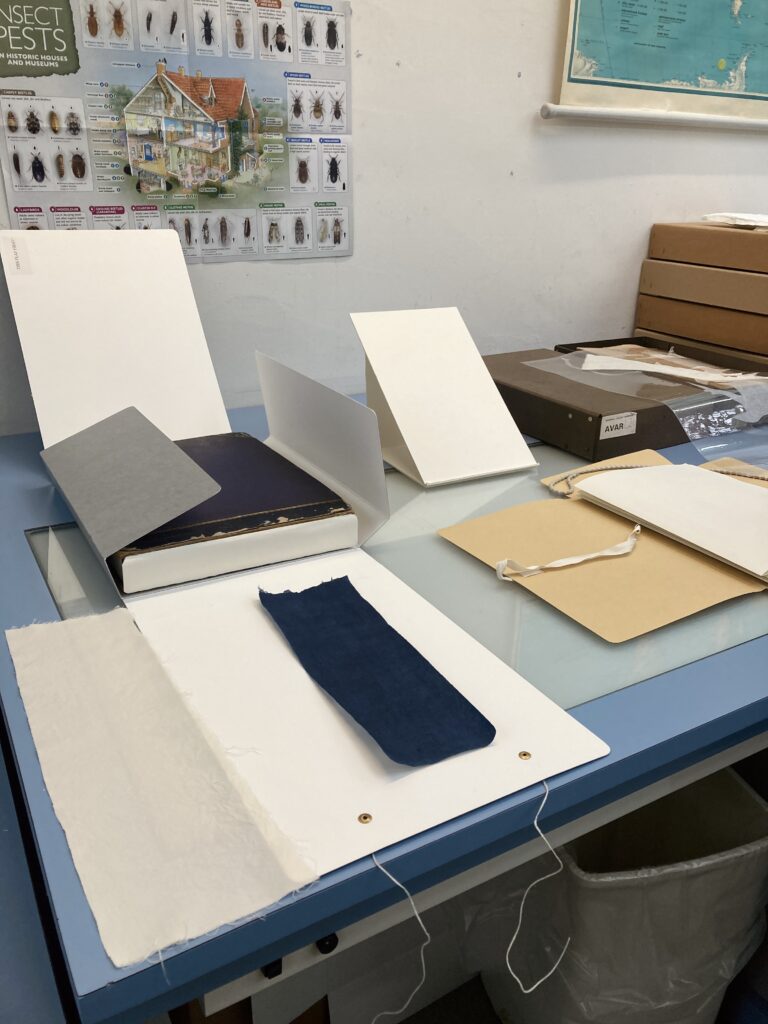
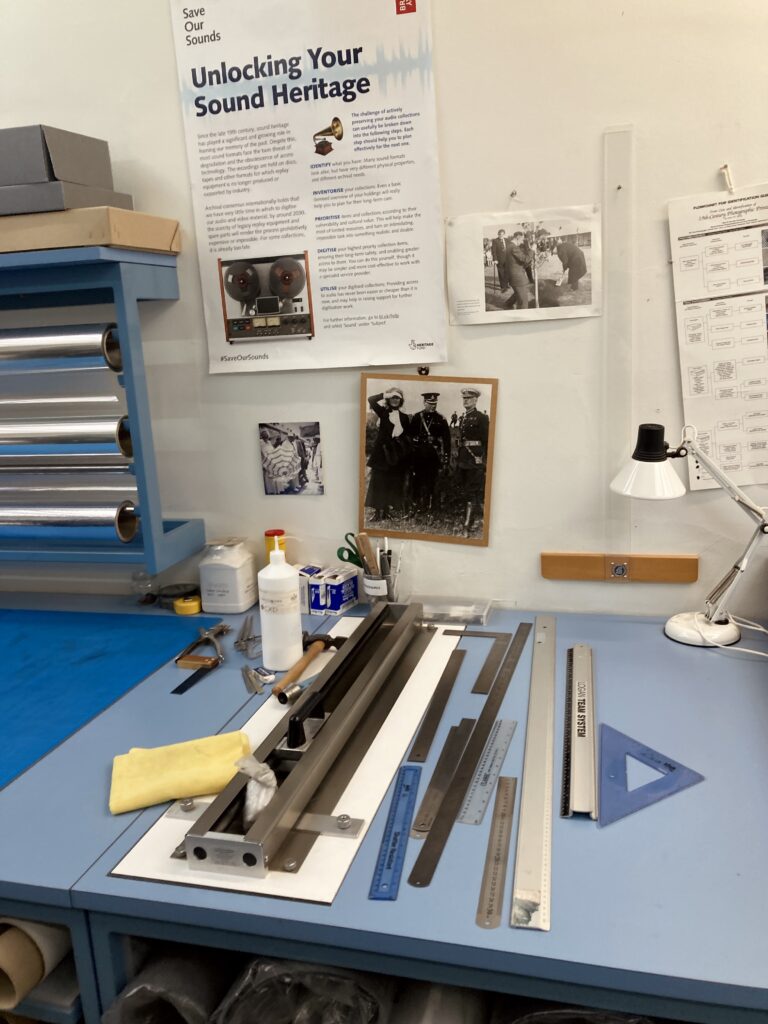
Next, we were led to the strongroom where many of the Winston Churchill and Margaret Thatcher items are kept. The archivists had kindly taken out some collection highlights to show us, including Thatcher’s own toy cat, Stanley, and her handbag, along with pictures as ample evidence that these were in fact the Real Deal.
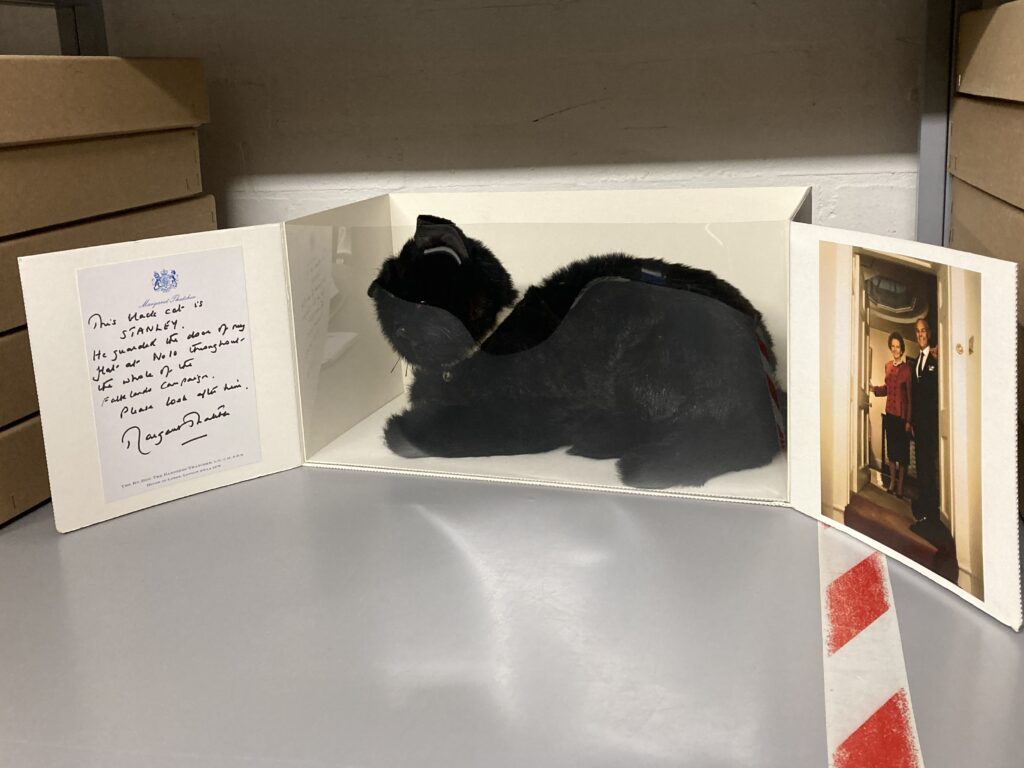
(Below) The actual handbag of Margaret Thatcher (and the actual thumb of the Pembroke Trainee).
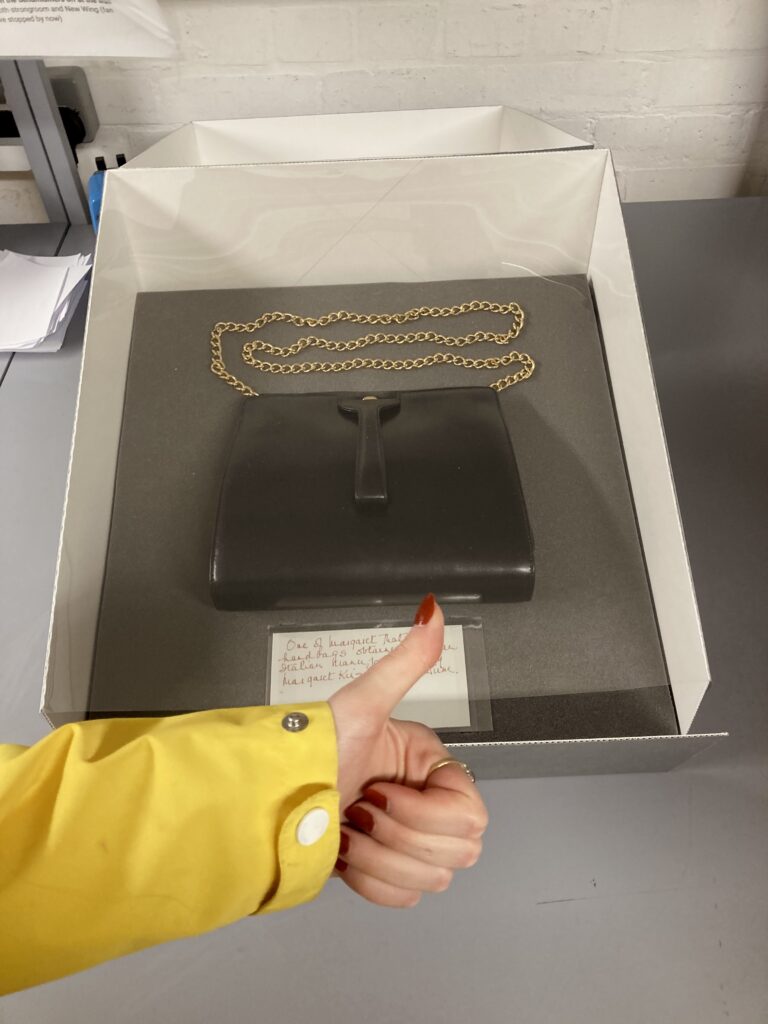
I asked whether the archives centre has a formal acquisitions policy, and we were told that the collection was initially centred on Churchill and his friends/associates, as well as other UK Prime Ministers. Now, it focuses more generally on modern political and scientific papers; as the Archives Centre website outlines, ‘Our collections encompass the personal papers of individuals who made and remade British domestic politics and international relations, advanced scientific knowledge, and who observed or transformed society, economics and culture.’
One of the archive assistants also pointed out that the centre has an unusually large naval collection relating to Stephen Roskill, who was a Senior Research Fellow at Churchill College, as well as a senior career officer of the Royal Navy, and who served during the Second World War.
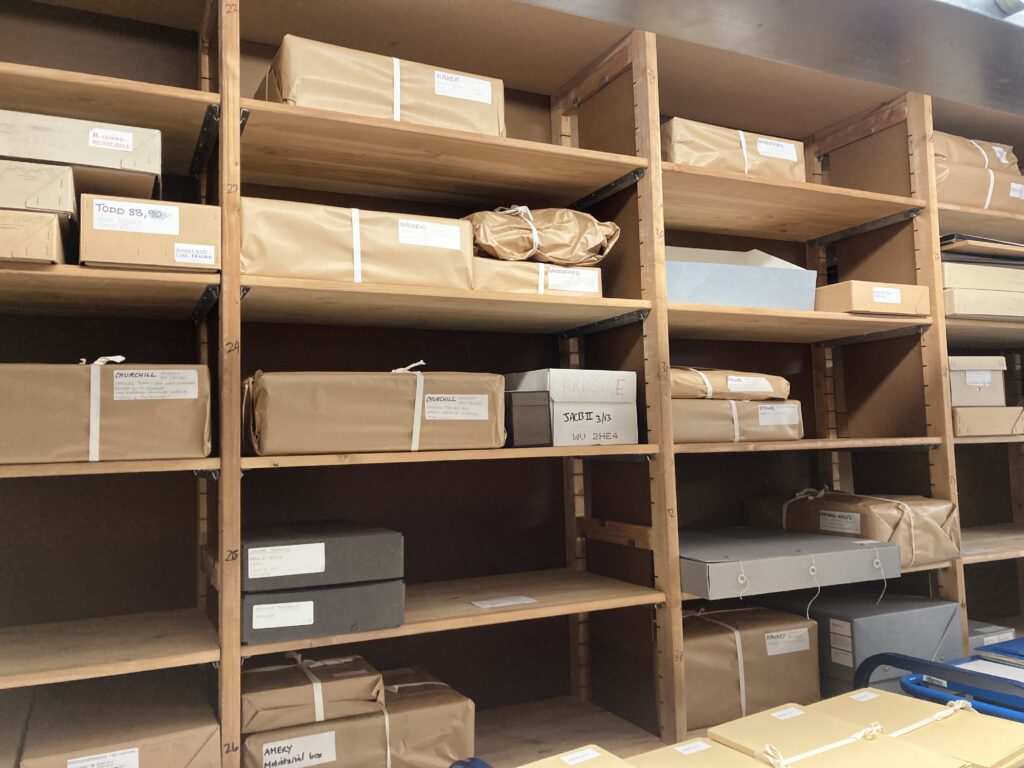
We spoke briefly about how digital archiving works, as this seems to be a growing concern among archivists with the rapidly evolving world of digital media. The archivists mentioned that there are various floppy disks and other kinds of data-storing hardware at the archives centre, which are proving difficult to draw information from. The concern with digital media is that technology will change at such a rate and in such a way that material stored in a certain form might eventually become inaccessible – which also makes investing money in certain technology or data storage an inherently risky process. For now, the team at Churchill store digital archives like emails in three copies, all hosted in separate locations, to ensure they are not lost to data breaches or corruption. It’s an aspect of archive work I had not considered before as most of the archives at Trinity predate digital media, and only exist in hard copy. I don’t doubt, though, that digital archives will present some new and compelling challenges to the archivists that work with them as time goes on!
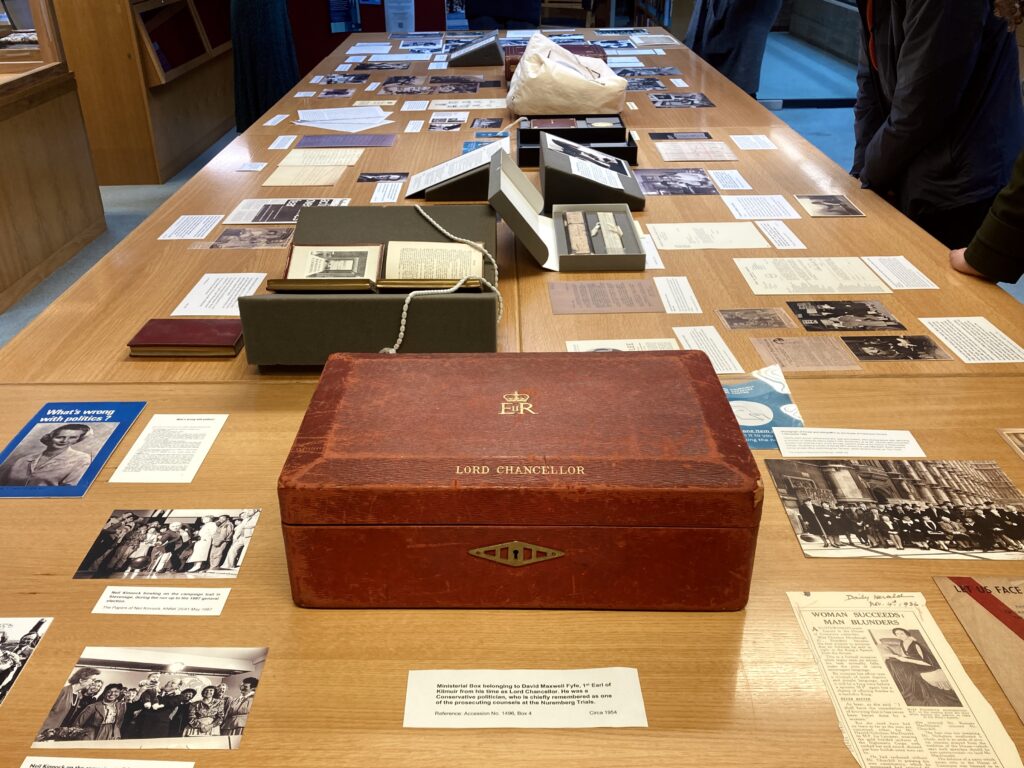
As we wandered up to the Archives Centre Reading Room, the team noted that, upon his death, Winston Churchill’s official papers were taken to be stored in the National Archive, while only his personal papers are kept at Churchill Archives Centre. I think we all agreed that the personal papers are far more interesting anyway!
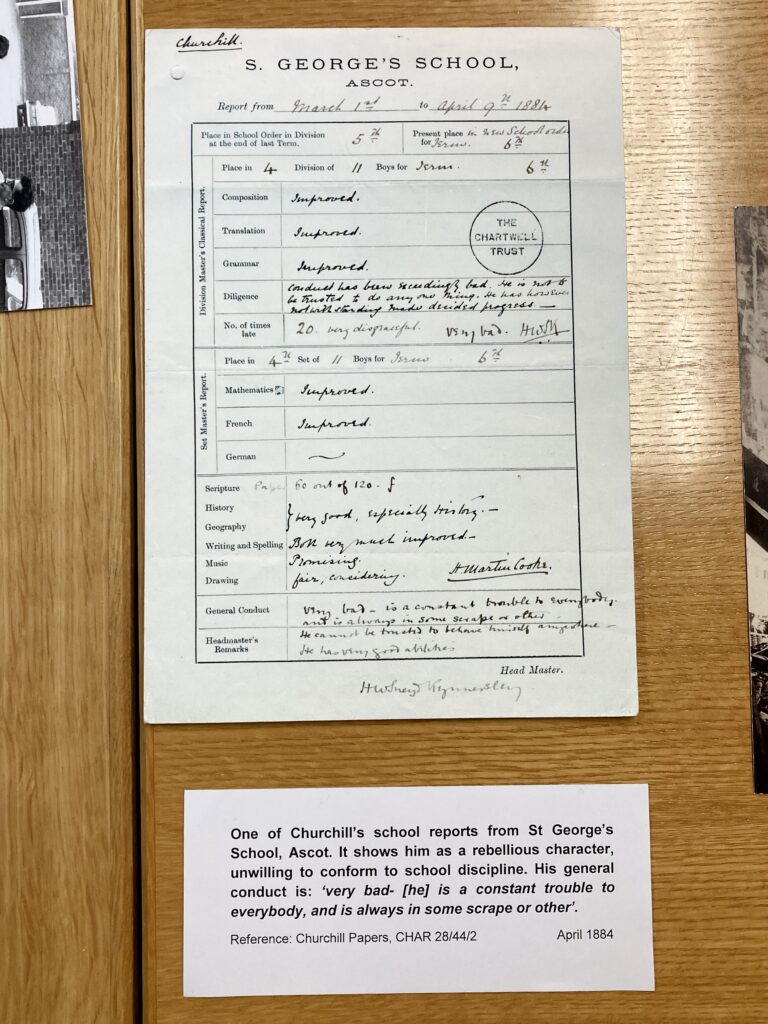
For example, we were shown a copy of Churchill’s rather concerning school report from April 1884, which stated that his general conduct was ‘very bad’, that he ‘is a constant trouble to everybody, and is always in some scrape or other’, along with the comment that ‘he cannot be trusted to behave himself anywhere’. Not the most encouraging review of a future Prime Minister!
I wonder how he would have fared in comparison to the ‘Leadership Qualities’ drawn up to compare Margaret Thatcher and Neil Kinnock, which lists ‘Ruthless’ as one of Thatcher’s principal qualities, with the caveat ‘don’t desire, but suspect necessary’.
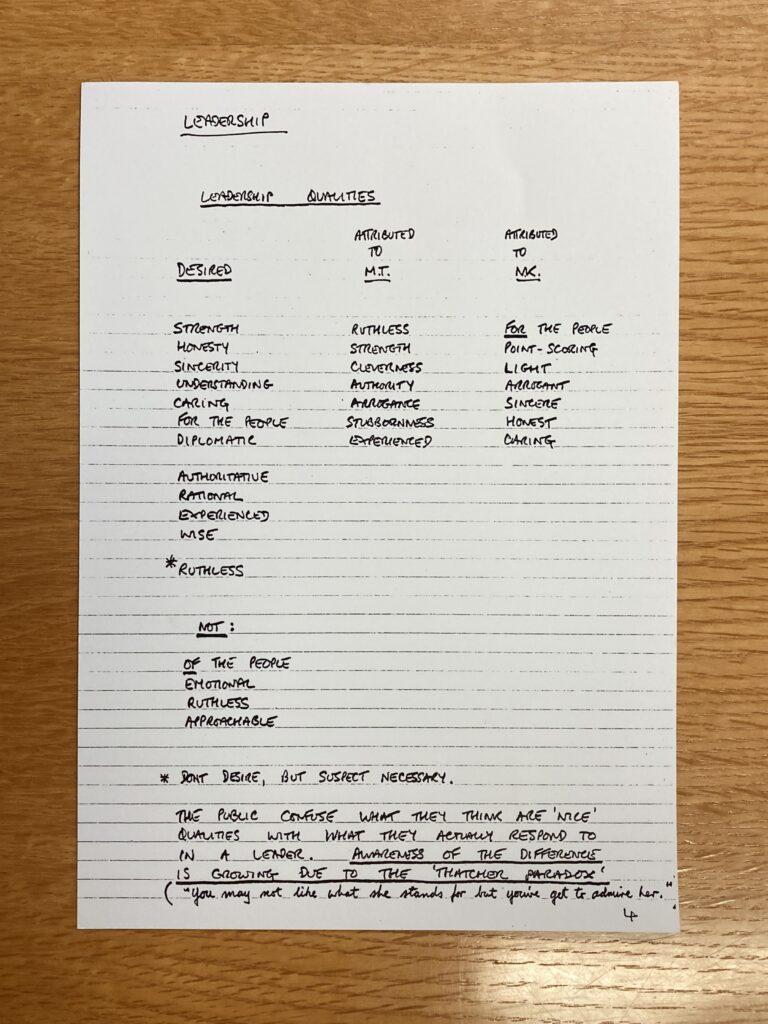
Another highlight from the reading room was “Bomb-proof Bella”, a photograph of an adorable and quite nervous looking dachshund who survived three trips to Dunkirk aboard the HMS Sandown!
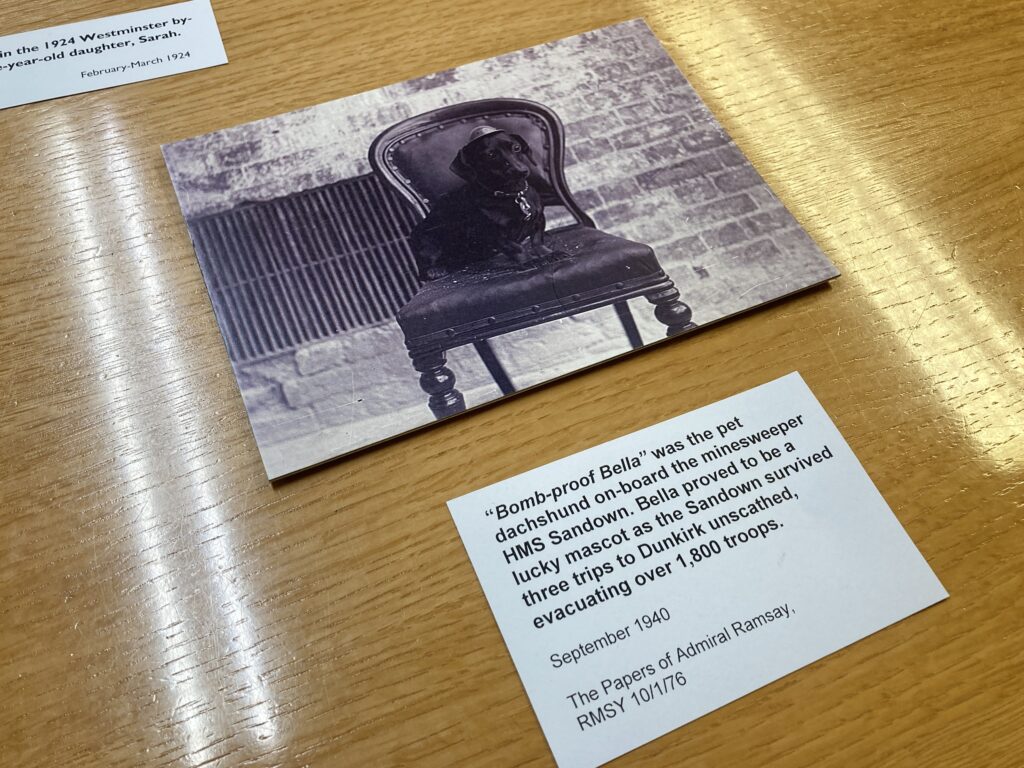
The trainees also enjoyed this survey of young people’s ‘perceptions of the future’, some of which were bang on (like the prediction that ‘people will go abroad much more than at present’ and that ‘most roads will be choked with cars at nearly all times of the day’). Only 59% of people thought that ‘every family will have a telephone’ and fewer still believed that ‘men and women will take equal shares in housework and looking after children’ (45%)! Looking at some of these surprising and often disquieting predictions was a harsh reminder that we have come so far in many ways, and not so far in others…
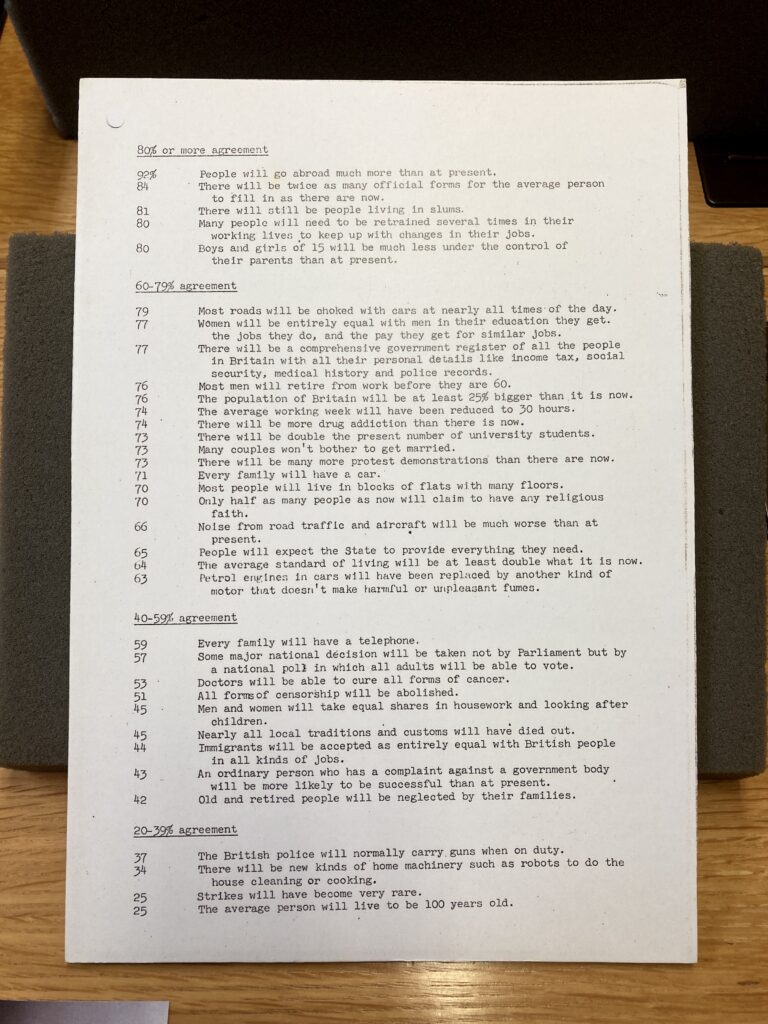
These were predictions from 1970 about the year 2000. Here are some library-related predictions from the trainees about what life will be like 30 years from now, all the way in 2054:
Harriet predicts that ‘in 30 years’ time, they will still be publishing Rainbow Magic Fairy books.’ (what a blast from the past!)
Anna predicts that ‘there will be a new system to rival Dewey.’ (Let’s hope so!)
And I (Liz) predict that faculty and department libraries will slowly evolve into “hub” spaces, and focus on health and wellbeing, as well as study!
After we had enjoyed some more archive highlights, the Churchill College Librarian kindly offered us a tour around the student libraries. We began in the Bracken Library, the entrance hall of which was home to a glorious display commemorating Neurodiversity Celebration Week, as well as a seed library! Here the students can help themselves to the range of flower and vegetable seeds which they can sow into small beds on their windowsills. (Very jealous that we don’t have this at Trinity!)
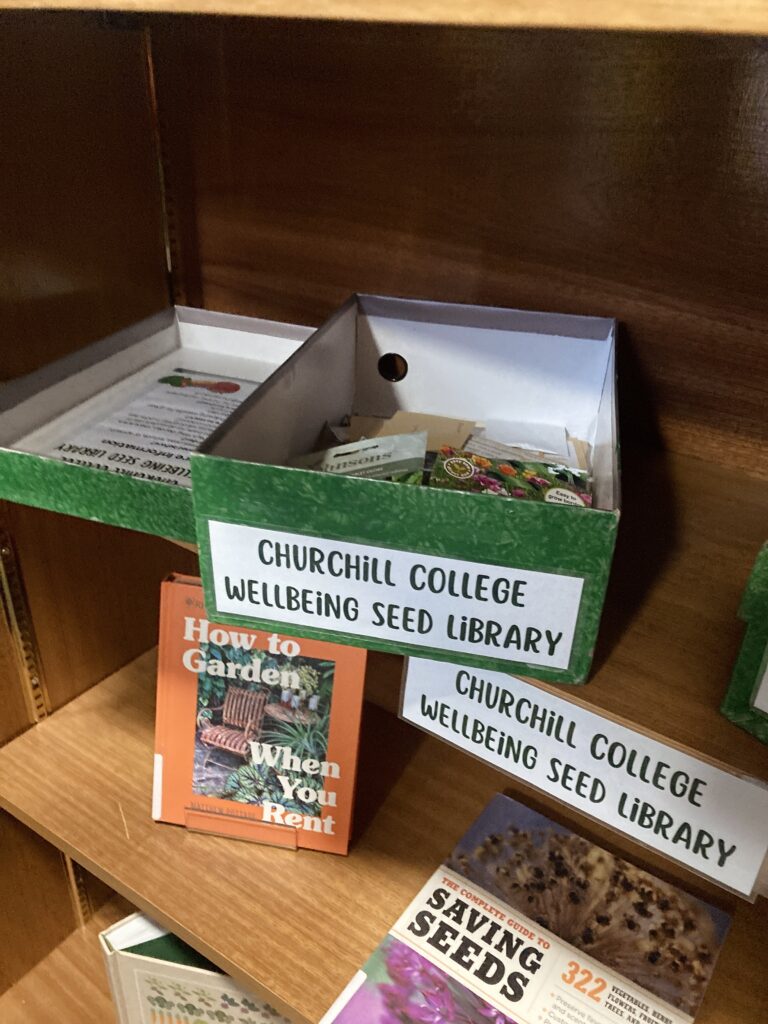
Dominating the Bracken Library was a vast and beautiful tapestry called ‘Etoile de Paris’ by Jean Lurçat, who donated it to the college in 1961. Under the watchful eye of the tapestry’s woven cockerel, the librarian explained that the Bracken is where the sciences and social sciences collections are kept, and that everything in Churchill is catalogued according to the Dewey Decimal system.
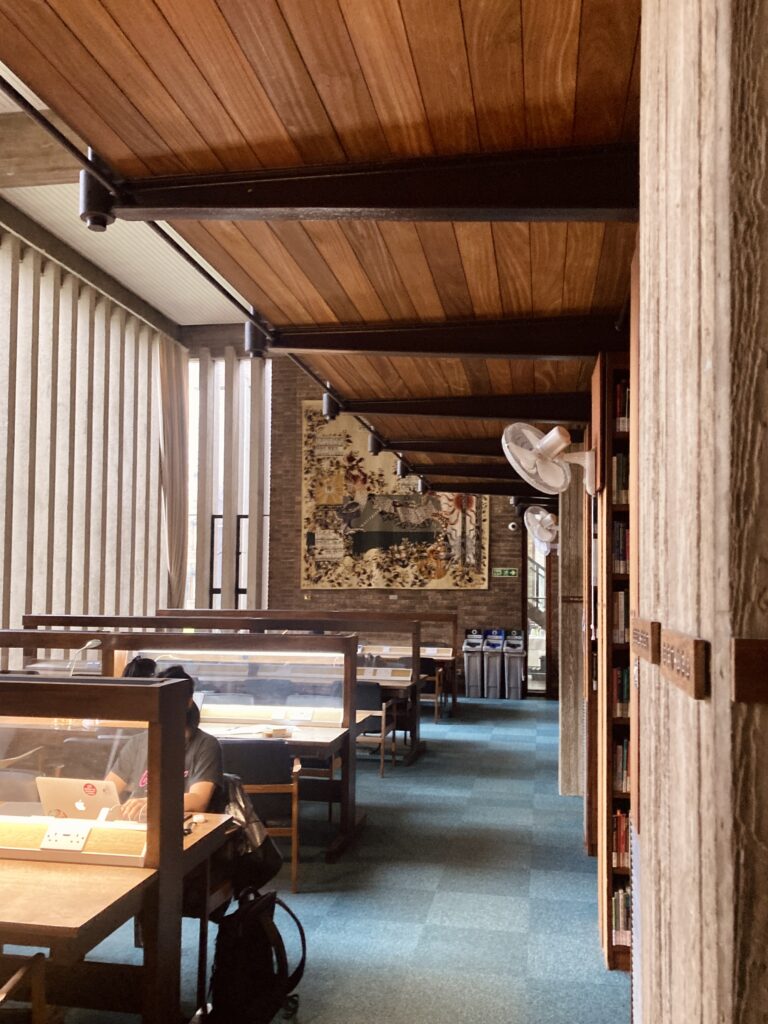
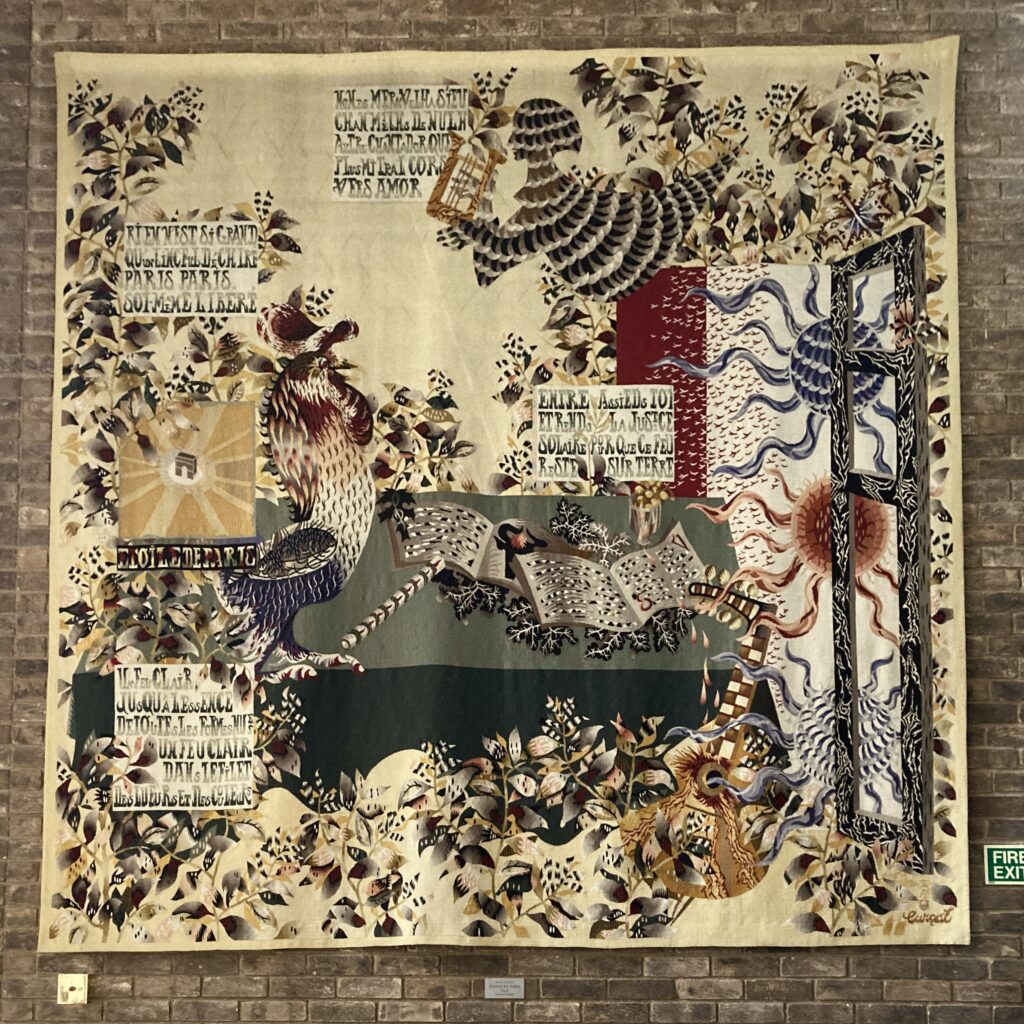
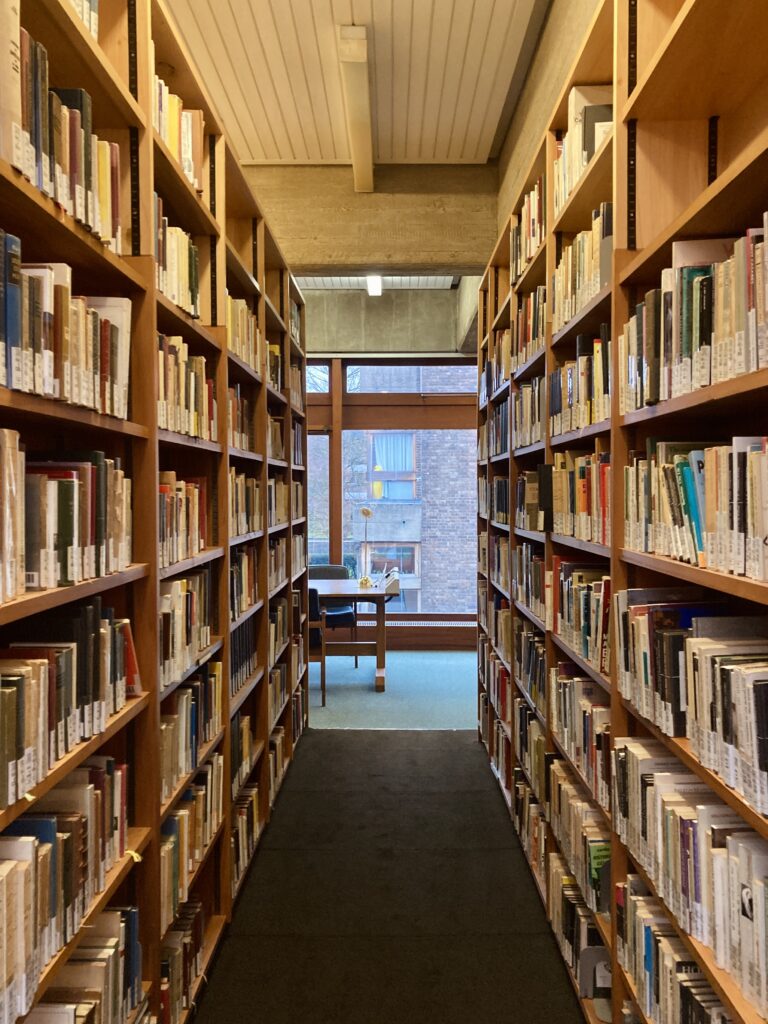
The arts and humanities collections are housed in Churchill’s other library, the Bevin Library. The entrance to this part of the building was host to yet more delightful displays, this time for Women’s History Month. The trainees were especially fond of the whiteboard asking for song recommendations by female artists for the Library playlist. (We even contributed a few tunes! If you’re curious, the final playlist can be found on Spotify here!)
In the Bevin, students were enjoying some more relaxed seating in the company of Churchill’s library mascot, Chu-Can the Toucan. And if that wasn’t enough, there was even a box of Pet Rocks leftover from a wellbeing event, which now live in the library for everyone to enjoy! Needless to say, the trainees were thoroughly obsessed, with rocks, with Toucan and with the library as a whole.
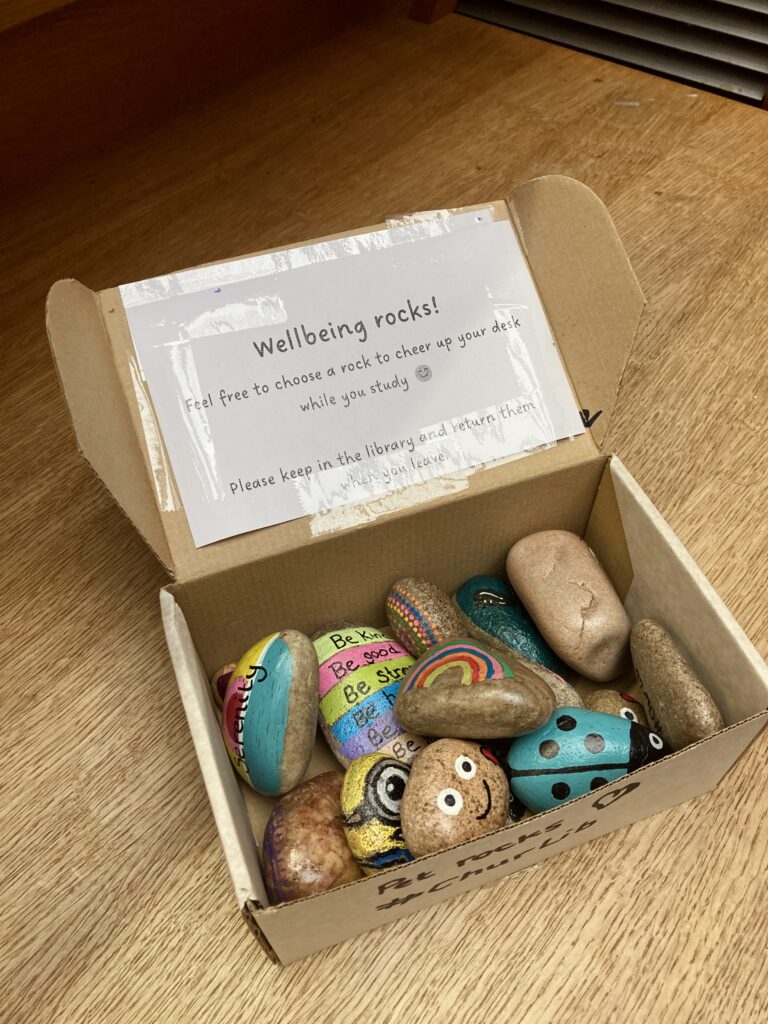
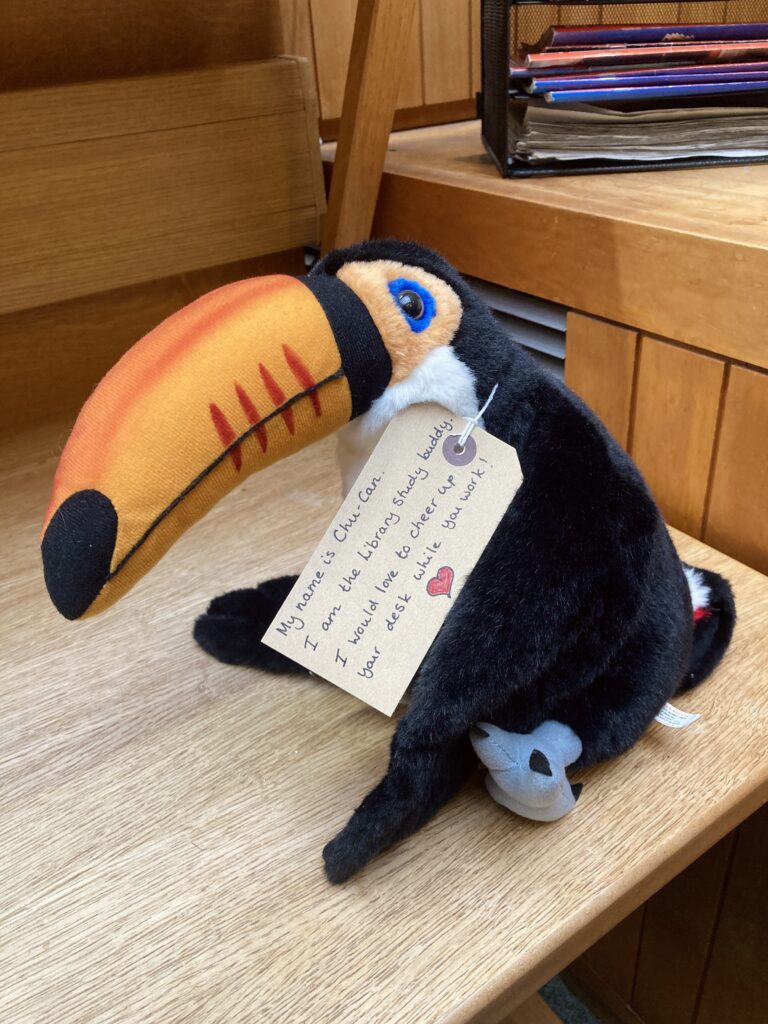
After some tea with our wonderful hosts, the archives team, we wandered on to our next trip of the afternoon at West Hub! We want to thank the incredible staff at Churchill Archives Centre and Churchill College Library for kindly hosting us.
